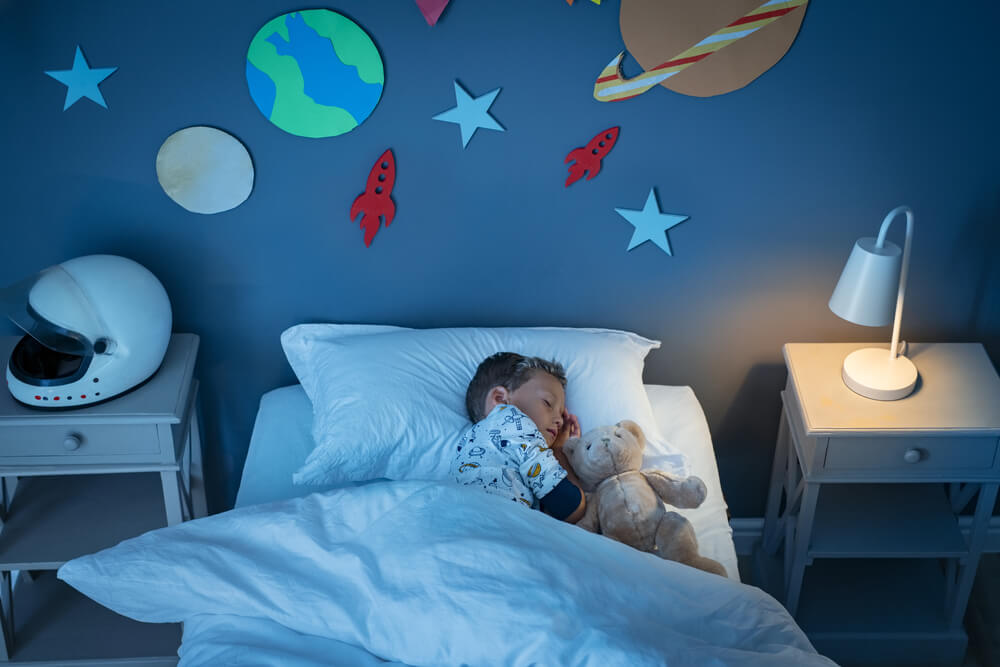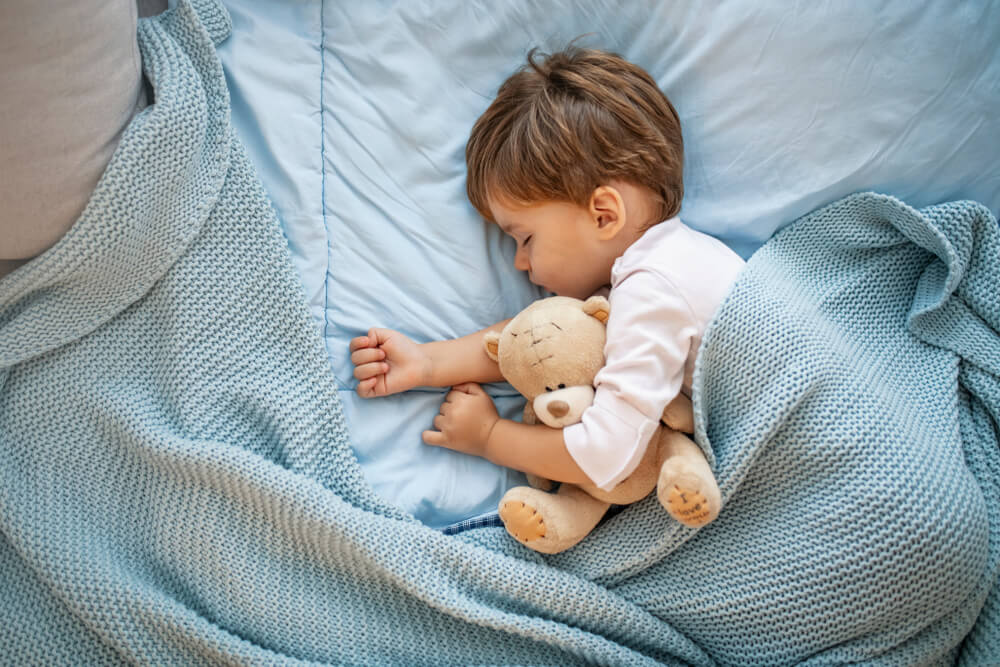As a new parent, you may wonder, how many hours of sleep do kids actually need? Children’s sleep is always a fruitful topic. It has been caricatured and made fun of in countless movies, depicting sleep-deprived parents who tend to their restless baby’s needs in the middle of the night, as the infants seem to be fascinated by everything else but sleep.
Still, we at Children’s Medical Center of South Florida know that movies don’t always represent the truth and that some parents will raise concerns regarding sleep during their child’s well-child checks.
As such, we’ve gathered all the necessary information you need to know about how many hours of sleep kids need.
Sleep Hours By Age
The AASM, or the American Academy of Sleep Medicine, divides children’s sleep needs into different age groups. While these are optimal recommendations, they only serve as general targets, and you should also remember that some kids may require more sleep while others less. These things will vary depending on a number of factors, such as developmental differences and even temperament.
On that note, the AASM’s sleep hours by age groups are the following:
- Infants between four and 12 months should get around 12-16 hours of sleep daily, with naps included
- Toddlers between one and two years old should get about 11 to 14 hours of sleep with naps.
- Preschoolers between the ages of three and five should get about ten to 13 hours of sleep with naps.
- School-age children from six to 12 years old require approximately nine to twelve hours of sleep within a 24-hour time period.

Children’s Sleep Needs: Newborns and Infants
Babies will spend most of their day sleeping; that said, experts don’t provide any specific recommendations for sleep regarding newborn babies under four months old. Mainly because there’s limited data on the subject and sleep cycle fluctuations for newborns are pretty common, not necessarily indicating sleeping problems.
That said, newborns usually sleep between 16 and 18 hours daily. The sleep will often be accumulated across several naps taken during the day. Also, newborns rarely sleep through the entire night without waking up.
Infants usually sleep 12 to 16 hours a day, with some of them starting to sleep through the night at six months old. Still, a large chunk of their overall sleep duration will come from naps.
Why So Much Sleep?
This is a time for substantial growth for babies, and sleep allows them to develop the brain and promotes physical development as well.
Daily naps are crucial in this aspect and typically last for one to four hours daily. As time passes, total nap time will also decrease, but they will often keep napping well into toddlerhood.
Also, children’s sleep needs, more specifically, the sleep needs of prematurely born children, will be even greater. Premature babies might even spend 90% of their day sleeping.
What To Do When Your Baby Won’t Get Enough Sleep?
You should consult your pediatrician if you have concerns about your infant’s sleep patterns and schedules. Keeping a sleep diary and tracking your child’s patterns can help experts determine if there’s a problem or not.
For the most part, both babies and parents can benefit from creating and keeping a consistent sleep routine and schedule so the baby gets a quiet and calm environment for sleep. Such an environment should also address critical safety measures to prevent sudden infant death syndrome (SIDS) and suffocation.
Sleep For Kids
As kids age, they will require significantly less sleep. While a toddler’s sleep needs will be closer to an infant’s, their sleep schedule will become similar to that of adults as they get older. That said, sleep hours by age will decline as children get older, which will often show in the decreased amount of daily naptimes.
And even though kids may require less rest than babies, proper sleep will still remain a crucial aspect of their overall development and health. Lack of rest at a young age can cause behavioral problems, mental health issues, problems with cognitive performance, and weight management.
Toddler’s Sleep Needs
It is advised that toddlers aged 1 to 2 should aim for 11 to 14 hours of sleep each day. During this stage, their napping routine undergoes changes compared to infancy and typically ranges from 1 to 2 hours per day. Initially, two naps per day are common, but as toddlers grow older, it is common for them to transition to taking only one nap in the afternoon.
Preschoolers
For preschool-aged children, specifically those between 3 and 5 years old, it is recommended that they receive approximately 10 to 13 hours of sleep in total per day. As they enter this stage, naps may become shorter, and some preschoolers may gradually reduce or discontinue napping regularly.
School-Age Kids
School-age children, ranging from younger to older ages, should aim for a total of 9 to 12 hours of sleep per day. It’s important to note that individual sleep requirements within this age group can vary significantly. Generally, younger school-age children require more sleep compared to those in middle school or approaching high school.
During puberty and adolescence, significant changes occur in sleep patterns, presenting unique challenges for teenagers and their sleep routines.

How many Hours of Sleep Do Kids Need: Is it Okay for Older Children To Take Naps?
For the most part, occasional napping will be normal, even for older kids, especially toddlers and preschoolers. On that note, napping will slowly become phased out during early childhood. Still, many children will ultimately stop napping around the age of five. Still, napping can be prominent even as children get older. As a matter of fact, some studies have shown that napping may have several benefits, not just for children but for young adults and adults as well.
Still, at the moment, the existing information about napping is inconclusive. In the case of children, optimal nap times can change over time, and each child will have their own preferences. And because of this, parents and caregivers should encourage optimal sleep for children by being understanding and flexible when it comes to naps.
Learn More
As you can see, the topic of sleeping can be pretty complex in the case of children, but most of the time, parents have nothing to be concerned about. And if you notice that your child has problems falling asleep, there are quite a few steps you can take to help them get better rest every night.
On that note, you can always feel free to reach out to our expert pediatricians, who can share even more approaches and strategies with you. And also, if you have any questions or concerns, they will be more than ready to assist you.


